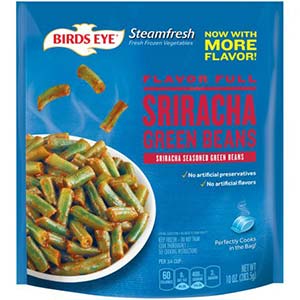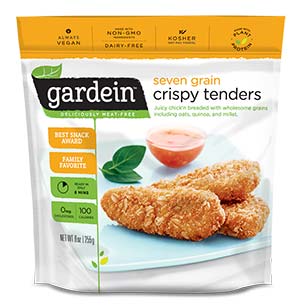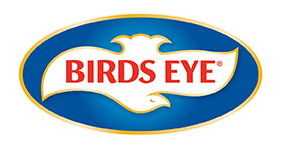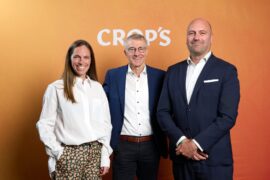Frozen and natural products contributed solidly to Pinnacle Foods’ 2.9% sales increase in the fourth quarter of 2017, as turnover reached $883.5 million. Net earnings for the Parsippany, New Jersey, USA-headquartered company amounted to $443.9 million, which was up significantly over $88.1 million during Q4 the year before.
Net sales in the frozen segment advanced 2.7% to $381.0 million, compared to $371.1 million during the fourth quarter of 2016. This growth reflected the 53rd week benefit amounting to 7.1% in the quarter, as well as the 1.1% recovery from hurricanes that negatively impacted the third quarter of 2017.
Partially offsetting positive factors were the unfavorable impacts of 2.6% from the exit of 16 Aunt Jemima brand products from the portfolio, and an underlying net sales decline of 2.9%. The latter was due to lower volume/mix of 4.4%, stemming from a reduction in retail inventories by several large customers late in Q4, partially offset by favorable net price realization of 1.3% and favorable foreign currency translation of 0.2%.
 In-market performance for the frozen segment remained robust in the quarter, with retail consumption advancing 1.5% (or 4.5%, excluding Aunt Jemima) in a category composite that was up 3.5%. Leading the retail consumption growth for the segment were Birds Eye vegetables at +9.2%, Birds Eye meals, +2.9%, and the new Hungry-Man Handfuls innovation. Market share for the segment, excluding Aunt Jemima, rose 0.2 points, led by Birds Eye.
In-market performance for the frozen segment remained robust in the quarter, with retail consumption advancing 1.5% (or 4.5%, excluding Aunt Jemima) in a category composite that was up 3.5%. Leading the retail consumption growth for the segment were Birds Eye vegetables at +9.2%, Birds Eye meals, +2.9%, and the new Hungry-Man Handfuls innovation. Market share for the segment, excluding Aunt Jemima, rose 0.2 points, led by Birds Eye.
EBIT for the frozen segment decreased 1.9% to $87.9 million in the fourth quarter of 2017, compared to $89.6 million in Q4 of 2016, largely reflecting previous year unfavorable impact of items affecting comparability and discrete costs totaling $4.6 million associated with both the Aunt Jemima exit and accelerated manufacturing investments.
Also impacting the performance were input cost inflation, driven by escalating logistics and packaging costs, and unfavorable product mix, partially offset by the higher net sales, strong productivity, and lower performance-based compensation expense. Adjusted EBIT in the fourth quarter, excluding items impacting comparability but including the $4.6 million of discrete costs, advanced 1.0% to $89.0 million, compared with $88.2 million in 2016.
Boulder Rolls Onward and Upward
Net sales for the Boulder segment increased 13.4% to $110.5 million in the fourth quarter, compared to $97.4 million in the previous year period, reflecting strong underlying net sales growth of 7.0%, which was driven by volume/mix growth of 3.5% and favorable net price realization of 3.5%, as well as the 53rd week benefit of 7.7%.
Partially offsetting these growth drivers were the residual impacts of the Boulder SKU rationalization program of 1.1% and the wind-down of the Boulder UK operations of 0.2%.
 The strong underlying net sales performance for the segment reflected double-digit growth for Gardein meat-free products and Earth Balance brands, partially offset by lower sales of Udi’s.
The strong underlying net sales performance for the segment reflected double-digit growth for Gardein meat-free products and Earth Balance brands, partially offset by lower sales of Udi’s.
EBIT for the Boulder segment was $21.8 million in the fourth quarter of 2017, compared to $0.8 million in the year-ago period, largely reflecting the benefits of the net sales growth, acquisition synergies, productivity and lower performance-based compensation expense, as well as the favorable impact versus year-ago of items affecting comparability. Partially offsetting these factors was input cost inflation. Excluding items affecting comparability, adjusted EBIT almost doubled to $24.5 million, compared to $12.7 million in 2016.
Grocery Up, Specialty Down
Net sales for the grocery segment, which currently ranks as the second largest sector of the packaged foods company’s business, increased 3.8% to $309.6 million in the fourth quarter of 2017, while specialty segment net sales decreased 9.9% to $82.5 million in Q4.
 Looking ahead, Pinnacle Foods’s CEO Mark Clouse commented: “Our outlook for 2018 reflects another year of double-digit adjusted diluted EPS growth, with a return to strong gross margin improvement. We remain committed to achieving our long-term gross margin objective but, given the short-term headwinds of escalating inflation and the negative mix effect of out-sourcing new product innovations, we now expect to achieve our targeted gross margin growth in 2020, one year later than previously planned.”
Looking ahead, Pinnacle Foods’s CEO Mark Clouse commented: “Our outlook for 2018 reflects another year of double-digit adjusted diluted EPS growth, with a return to strong gross margin improvement. We remain committed to achieving our long-term gross margin objective but, given the short-term headwinds of escalating inflation and the negative mix effect of out-sourcing new product innovations, we now expect to achieve our targeted gross margin growth in 2020, one year later than previously planned.”





